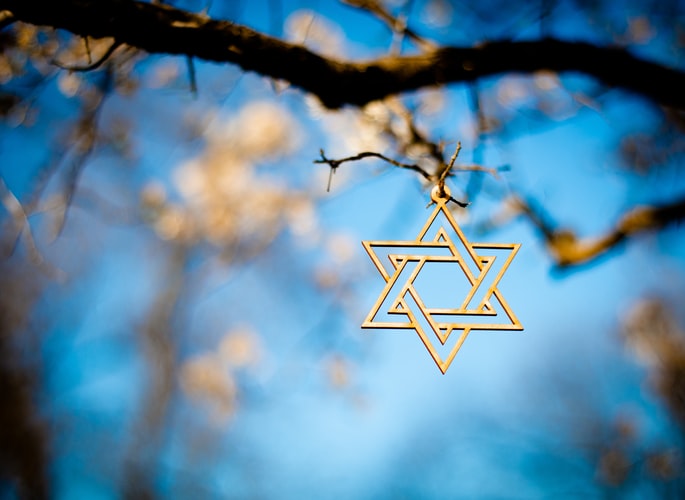
As leader of the Joint Public Issues Team, Rachel Lampard calls the Church to a new song of opposition against increased antisemitism.
Friends of mine, who I didn’t even realise were Jewish, told
me last year how worried they were about the antisemitism being stirred up in
politics. Then an Orthodox Jewish friend said that she now felt nervous walking
down the street. I was ashamed how I was taken aback by this fear expressed by
my friends. What was happening in our country?
There has been an increase in incidents against Jewish people reported
to the Community Security Trust over the last year. The number of violent
assaults rose by 25%, and the Trust also reports a 50% increase in incidents on
social media compared with the previous year.
Jewish people are targeted by far right and Islamist
extremists. In early 2020 a teenager was jailed for planning attacks on
synagogues. Graffiti on synagogues, graves and shops have increased. In other
countries, Jewish people have been murdered in places of worship or shops. At the same time as a rise in far right
activity, there has been an increase in antisemitism from the political left
as well. Social media has been used to abuse Jewish politicians, and the Equality
and Human Rights Commission is using its
powers under the Equality Act to investigate whether the Labour Party broke the
law.
Some commentators have described this as a perfect storm,
with heads of state emerging, such as President Trump in the USA, or Prime
Minister Victor Orban of Hungary, who normalise such views.
Our response
What does it mean for our Church to sing a new song when we are looking at the creeping malevolence of antisemitism? We all have to begin by learning from our own past offence – with some humility. There is often close sharing between churches and synagogues at local levels, yet historically Christians have been responsible for violence and prejudice against Jewish people. Do we still fall back on stereotypes or use language or actions which could be offensive, for example appropriating the Passover Seder meal for our own Maundy Thursday Holy Communion?
Challenges to antisemitism are sometimes met with responses of “but what about Muslims? Or Sikhs? Or Palestinians?” We should recognise that we don’t need to take part in a competitive human rights Olympics. The antisemitic tropes of power and money perhaps mean that Jewish people are not seen as ‘victims’ of racism and prejudice in the same way as other minority groups.
Standing up against antisemitism does not mean we are denying the rights of others. Antisemitism is wrong. Islamophobia is wrong. We are called as Christians to solidarity alongside all who are oppressed or face discrimination.
But will criticising Israeli policy over Palestine be seen as antisemitic? Some opposition to current Israeli policy certainly crosses the line into antisemitic imagery and insult, for example blaming all Jewish people for the actions of the Israeli government, or equating the government with Nazism.
Helpfully the Methodist Conference of 2018 joined the Home Affairs Select Committee report of October 2016 “in emphasising that it is not antisemitic to criticise the Government of Israel, without additional evidence to suggest antisemitic intent.” Does standing up against antisemitism mean betraying Palestinian people? On the contrary, unless we are strong and clear in our opposition to antisemitism, we will undermine our ability to be heard when speaking out against the daily injustices carried out by the Israeli government.
Listening and Learning
I recently took part in a number of discussions organised by the Council for Christians and Jews. These were for the Listening and Learning Together resource, funded by the Methodist Church and available for local groups soon here. The topics touched at the heart of disputes around Israel and Palestine – settlements, security, victimhood, Gaza, Jerusalem, Zionism. The conversations between Jewish people and Christians were careful, courteous and critical, difficult and frustrating at times, enlightening and surprising at others. We talked together respectfully, even when we disagreed, about what justice in Israel Palestine looks like. Sadly I fear it will be a long time before our country is free of fear based on one’s religion. But together can we learn to sing a new song of humility, solidarity and justice?
This article was first shared in the Summer 2020 edition of Connexion Magazine, which you can view here.
<!–
–>
Source
